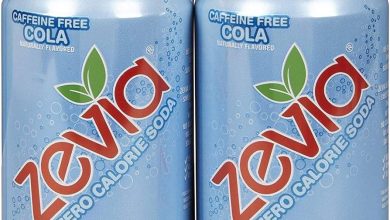Nutrient-Packed Tuna in Oil: A High-Protein, Low-Carb Seafood Delight
Tuna (Light Canned in Oil, Drained Solid)
Tuna is a highly versatile and nutritious seafood option that brings a delightful depth of flavor to a wide range of dishes. The canned variety, specifically light tuna in oil, offers a rich texture and convenient preparation for everything from salads to sandwiches. When the tuna is drained, it provides a lean protein source packed with essential vitamins and minerals. Below, we explore the nutritional breakdown of this delightful ingredient, as well as its benefits for those following specific dietary preferences.
Nutritional Information:
| Nutrient | Amount per 100g |
|---|---|
| Energy (kcal) | 198.0 kcal |
| Protein | 29.13 g |
| Total Fat | 8.21 g |
| Saturated Fat | 1.534 g |
| Carbohydrates | 0.0 g |
| Fiber | 0.0 g |
| Sugar | 0.0 g |
| Calcium | 13.0 mg |
| Iron | 1.39 mg |
| Magnesium | 31.0 mg |
| Phosphorus | 311.0 mg |
| Potassium | 207.0 mg |
| Sodium | 416.0 mg |
| Zinc | 0.9 mg |
| Copper | 0.071 mcg |
| Manganese | 0.015 mg |
| Selenium | 76.0 mcg |
| Vitamin C | 0.0 mg |
| Thiamin (B1) | 0.038 mg |
| Riboflavin (B2) | 0.12 mg |
| Niacin (B3) | 12.4 mg |
| Vitamin B6 | 0.11 mg |
| Folate (B9) | 5.0 mcg |
| Vitamin B12 | 2.2 mcg |
| Vitamin A | 23.0 mcg |
| Vitamin E | 0.87 mg |
| Vitamin D2 | 6.7 mcg |
Allergen Information:
Tuna, being a type of fish, is a common allergen for individuals sensitive to seafood. Those with fish allergies should avoid this ingredient entirely. Additionally, the canned version is often preserved with oil, which may contribute to dietary concerns for those avoiding fats or oils. Always check for added ingredients in the oil, as some products may contain additional preservatives or flavoring agents.
Dietary Preferences:
- High Protein: Light tuna is an excellent source of lean protein, making it ideal for those following high-protein diets, such as keto or low-carb regimens.
- Low Carbohydrate: With 0.0g of carbohydrates per 100g, it fits perfectly into a low-carb or keto lifestyle.
- Gluten-Free: This ingredient is naturally free from gluten, making it a safe and nutritious option for those with gluten sensitivities or celiac disease.
- Paleo and Mediterranean Diets: Tuna is a great fit for both the paleo and Mediterranean diets due to its healthy fat profile and rich omega-3 fatty acids.
- Sodium-Conscious: While nutritious, this canned tuna has a relatively high sodium content (416 mg per 100g), so individuals on low-sodium diets should consume it in moderation.
Advice:
Tuna in oil is often chosen for its rich, moist texture, which works wonders in recipes such as tuna salads, pastas, casseroles, or as a topping for crackers. To reduce the oil content, simply drain the tuna and pat it dry with a paper towel. Pair it with vegetables, leafy greens, or whole grains for a well-rounded meal. You can also enhance its flavor with a dash of lemon, herbs, and spices, or mix it into your favorite Mediterranean or Asian-inspired dishes for added depth.
Conclusion:
Tuna (light canned in oil, drained solid) is not only a protein-packed powerhouse but also an incredibly versatile ingredient in the kitchen. Whether you’re looking to boost your daily intake of essential nutrients, or simply need a quick and satisfying meal, this ingredient serves as a nutritious, heart-healthy addition to your pantry. While it is suitable for a variety of diets, always keep in mind any personal dietary restrictions or allergies to fish. As a delicious and accessible source of protein, tuna remains a timeless favorite in home cooking, offering a wealth of culinary possibilities for a wide range of dishes.







